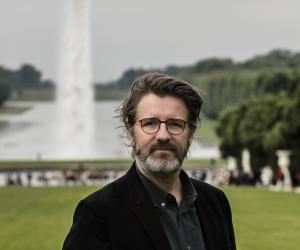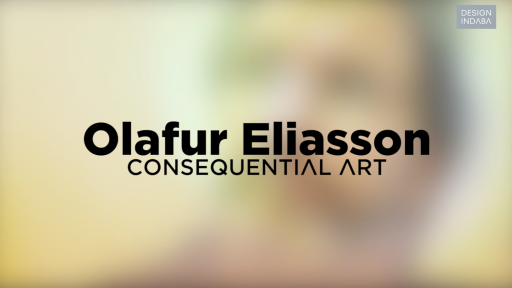Olafur Eliasson is an agent of change through creativity. The Berlin-based artist took to the Design Indaba Conference stage to share some of the insight he has gained during his career as a multidisciplinary artist.
Eliasson described the power of design to form communities and pointed out that the culture of sharing seems to be stronger among figures of the design world than among politicians. Eliasson interrogated the concept of scale and how the focal point of a design allows the viewer to relate to it easily.
The artist advocates for creative people to not only consider all the dimension of a product with care, but also designing for the sensory engagement of the person who would use it. For example, Eliasson posed a probing question for architects to think on – “how can hospitality be made explicit through design?” – since the feeling of hospitality must be inspired in the consumer who engages with the space and not the architect.
“We mistakenly take our way of perceiving the world for granted as being natural. The way we see things, the way we engage things – it’s not natural, it’s cultural,” said Eliasson.
Eliasson highlighted the fallibility of thinking in terms of human senses alone and that reality can be recalibrated. When eyesight is poor, our sense of balance and tactility compensates for the deficit and according to Eliasson, good design should reflect this fluidity.
“I want to take away this focus on the quantifiable nature and definition of what is real and what is not real. Something ephemeral allows more space for the presence of the person, meaning the experience of it, the sensation of it, would become the sculpture itself,” said Eliasson.
The designer unveiled the first look at Little Sun Diamond, the latest part of a social business and global project founded by Eliasson and engineer Frederik Ottesen with an aim to bring clean, reliable and affordable energy to 1.1 billion people.
Launched in 2012 at London’s Tate Modern, the enterprise has thus far produced 500 000 solar powered LED lamps with almost half going to communities that live without access to electricity. This provides a clean alternative to toxic and expensive kerosene-based lighting in off-grid areas.
The first group of Design Indaba Conference 2018 speakers will be announced on 1 November.









